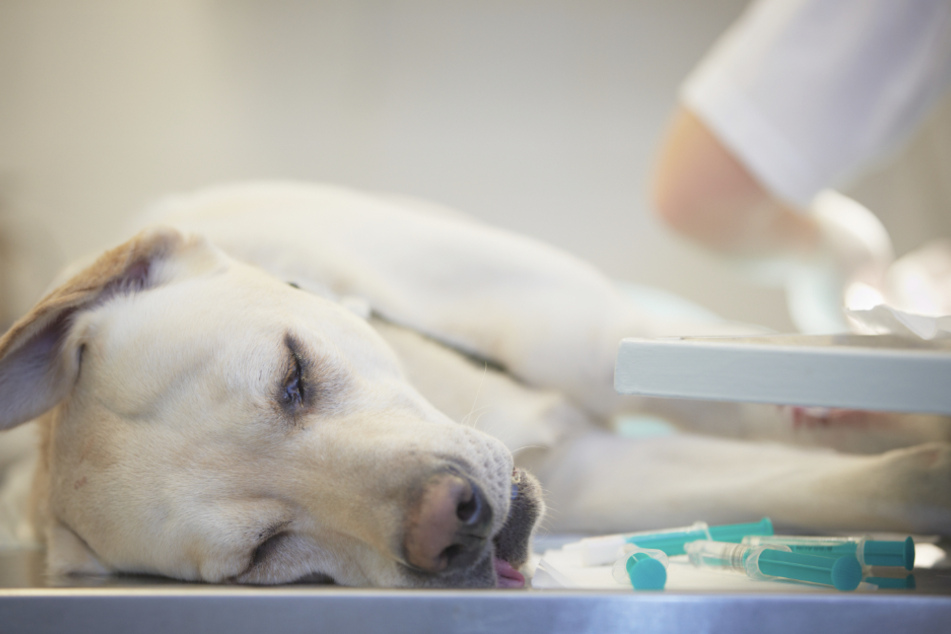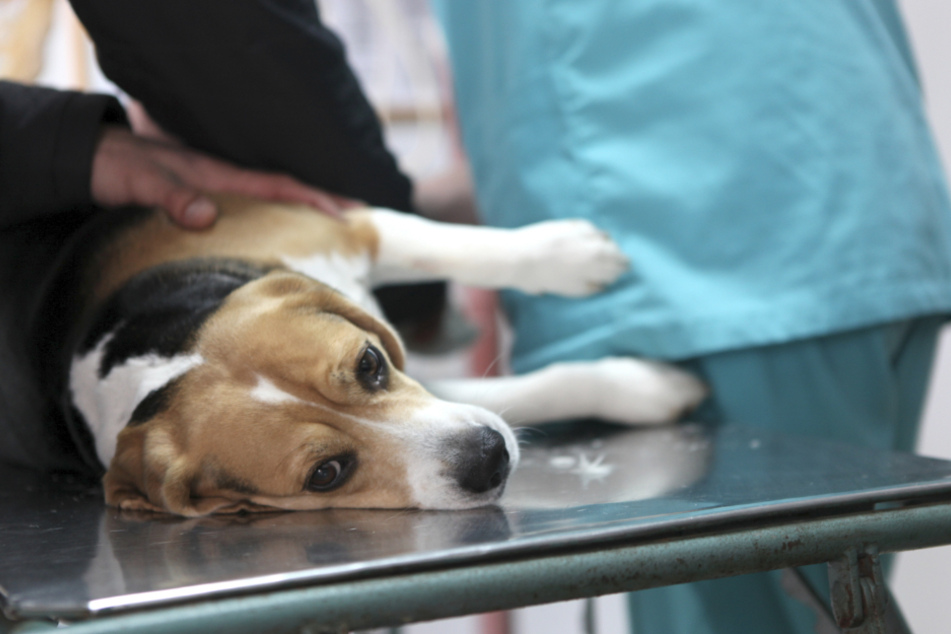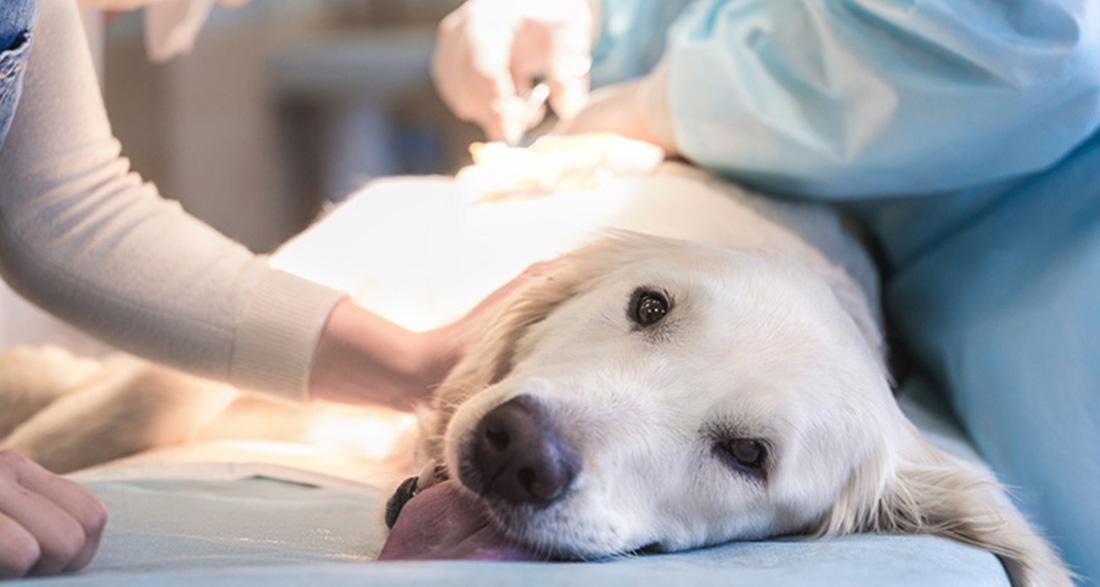Neutering dogs has become a standard medical procedure. The question of whether to neuter one’s dog can be a thought-provoking decision for dog owners, and not without reason, as the procedure should be well-considered.
Dogs that exhibit aggression, disobedience, excessive marking, frequent running away, loss of appetite in the presence of a female in heat, or mounting behavior can pose a real challenge for their owners.
When a dog becomes problematic, many dog owners believe that neutering is the solution. They assume that once the dog is no longer influenced by its sex hormones, training will become much simpler.
However, the procedure is not as straightforward and effective as it may seem.
In the following, you’ll find information on the potential advantages and disadvantages of neutering for dogs, along with other crucial details about the procedure.
Process of Neutering in Dogs
Neutering involves the surgical removal of the reproductive organs necessary for breeding in dogs, and it is performed under general anesthesia. Neutering can be done for both male and female dogs.
Neutering in Male Dogs Neutering a male dog is considered a straightforward routine procedure. It is much simpler than neutering a female dog and is therefore more cost-effective.
During the operation, the dog’s scrotum is incised, the testicles are removed, and the spermatic cords are ligated. What remains is a scar and lifelong infertility.

Neutering in Female Dogs
Neutering a female dog is a bit more involved and therefore more expensive than in males.
Under general anesthesia, the ovaries and, in some cases, the uterus are removed from the female dog. While removing only the ovaries would be sufficient, the removal of the uterus is often done preventatively to avoid certain diseases.
When is Neutering in Dogs Advisable?
In theory, dogs can be neutered at any age. However, it is essential to wait until puberty, bone growth, and significant developmental stages of the dog are complete.
Sex hormones play a crucial role in the development of the brain and, consequently, in the dog’s intelligence, stress processing, and social competence.
In case of doubt, consult a veterinarian or multiple professionals to determine if and when neutering your dog is advisable. Dog trainers can also provide advice on the necessity and timing of neutering.
Early neutering in dogs leads to numerous problems such as poor bone development and behavioral issues.

What is the Cost of Neutering in Dogs?
The cost of neutering depends on the dog’s gender, weight, and size. The type and quantity of anesthesia, as well as medications, bandaging materials, and necessary follow-up examinations, also influence the price of neutering.
The fees and additional costs that can be charged are outlined in the Fee Schedule for Veterinarians. This schedule also sets a framework for fees.
As the principles for time and other factors can vary significantly, it is not possible to provide a universally applicable statement but only a rough estimate of the costs for neutering.
Estimated costs for neutering in dogs:
- Male: Up to $400
- Female: Up to $600
Dog owners should clarify the fee rates and additional costs in advance. It is advisable to consult various veterinary practices or animal clinics, obtain price quotes, and compare them.
The price differences can be significant, so investing some time in research can be financially rewarding.
Advantages of Neutering in Dogs
There are several positive aspects that speak for neutering dogs.
Possible advantages of neutering in dogs include:
- Infertility (preventing unwanted offspring)
- Prevention of diseases such as testicular cancer, pyometra (uterine infection), mammary tumors, or false pregnancy
- Neutering may be a requirement for dog schools, kennels, or competitions
- Hormone-driven behaviors occur less frequently or are eliminated
- No heat cycles and bleeding in females
- Insulin can work undisturbed by sex hormones in dogs with diabetes mellitus
However, dog owners should consider that neutering does not guarantee that the dog will remain healthy. Some diseases are not solely related to the organ but are influenced by other factors such as diet and stress.
Another point to note is that the overall risk for certain diseases is generally low. It is not sensible to remove everything from the dog out of fear that it might potentially become diseased.
Dog owners should consider whether neutering truly benefits the dog or if they are hoping for an easier-to-handle dog through the procedure.
Disadvantages of Neutering in Dogs
Like any surgical procedure, neutering is not entirely risk-free, and after the operation, it can negatively impact the dog’s health and behavior.
Possible disadvantages of neutering in dogs include:
- Basic risks of anesthesia, surgery, and scar healing
- No longer able to breed
- Increased risk of obesity
- Tendency for hypothyroidism
- Incontinence (urine leakage)
- Developmental stop, lack of physical and mental maturation (e.g., inactivity, disinterest, childlike behavior, insecurity, and restlessness)
- Change in coat, retention of “puppy fur”
- Increased risk of spleen tumors, bone cancer, and prostate cancer (prostate carcinoma)
- Susceptibility to joint diseases and orthopedic issues such as hip dysplasia
- Frequent ear infections
- Especially in females, there may be increased aggression and rejection towards other dogs, leading to fights and aggression
Whether the dog tolerates neutering well or suffers from negative consequences depends on the correct timing and the individual animal.

Behavior of the Dog After Neutering
Neutering is often performed to curb behaviors in dogs that are influenced by sex hormones. It can be surprising for dog owners when, after neutering, the male or female dog shows no improvement or even a worsening of undesirable behaviors.
In such cases, the dog’s behavior has been mistakenly attributed to sex hormones. However, there are numerous other hormones and factors that contribute to undesirable dog behavior.
Sex hormones, on the other hand, contribute to hormonal balance. When they are absent, there can sometimes be a fundamental change in the dog’s nature.
Aggression, Fear, and Insecurity
A highly effective hormone is cortisol, also known as the stress hormone. If this is produced excessively in dogs, cortisol promotes fear, insecurity, panic, and aggression. Neutering can help curb behavior controlled by cortisol.
However, there are other reasons for aggression, fear, or insecurity in dogs.
Dogs can also show aggression as a form of self-protection and self-defense, influenced by the fight hormone norepinephrine. This hormone also facilitates quick learning in dogs. Consequently, the dog quickly learns that aggression is an effective way out of an uncertain situation.
If animals are neutered too early, they may lack confidence and stress resilience, leading to insecurity and fear.
Dominance
Neutering will not solve the problem if someone perceives their dog as dominant. The term dominance does not describe a characteristic of the dog but rather the relationship between two dogs or between a dog and a human.
If owners cannot train their supposedly dominant dog, the issue often lies not with the dog but rather with the leadership skills of the owners.

Sexual Drive and Resource Guarding
Some dog owners may believe that neutering their dog will alleviate sexual frustration. However, in a natural dog pack, not all animals express their sexual drive because dogs live in a hierarchy where only the highest-ranking individual is entitled to mate.
When a dog mounts objects, animals, or people, it often has nothing to do with sexual drive but is rather a displacement behavior that can have various causes.
Behaviors like jealousy and protective guarding are not controlled by sexual hormones but by the jealousy hormone vasopressin. Neutered dogs can defend their owners just as aggressively as unneutered dogs.
The parental hormone prolactin ensures that males defend their offspring and can trigger a false pregnancy in females.
Negative behaviors that are not attributable to sexual hormones persist after neutering and can even worsen. Therefore, neutering in dogs can never replace behavioral therapy.
Alternatives to Neutering in Dogs
For those who do not want to permanently render their dog infertile, there are alternatives that temporarily reduce sexual hormones.
Sterilization
It is a misconception that castration is performed in males and sterilization in females. These terms describe two different procedures that can be performed on both genders.
During sterilization, the sperm or fallopian tubes are cut. The testicles or ovaries remain intact, allowing sexual hormones to continue functioning.
The advantages are that the hormonal balance is not as disrupted as with castration, and sterilization is often reversible.
In veterinary practice, sterilization is less commonly performed because it is a somewhat more complicated and expensive procedure. Furthermore, hormonal behavior does not change with sterilization of the dog.

Chemical Neutering in Dogs: Hormone Implant
Chemical neutering is currently only approved for males and temporarily renders the dog infertile.
To chemically neuter a dog, a Suprelorin implant or neutering chip is placed under the skin between the shoulder blades or in the abdominal area.
The implant contains the active substance deslorelin, which limits libido, testosterone levels, and reproductive capability in the dog for approximately 6 to 14 months.
Dog owners should be aware that the effects of the implant become apparent only after a few weeks.
This temporary option is suitable for assessing whether sexual hormones genuinely negatively affect the dog, allowing owners to train the dog’s behavior accordingly.
Conclusion: Does Your Dog Really Need to be Neutered?
Dog owners should carefully consider why they want to neuter their dog and whether neutering is truly the right solution.
While neutering can protect the dog from certain diseases, it simultaneously makes them more susceptible to others.
It is advisable to seek comprehensive advice and individually weigh the dog’s suffering due to sexual hormones and reproductive organs.
Neutering is not a path to an easy dog. The operation cannot replace proper dog training or behavioral therapy. What matters most are the well-being and health of the dog.


